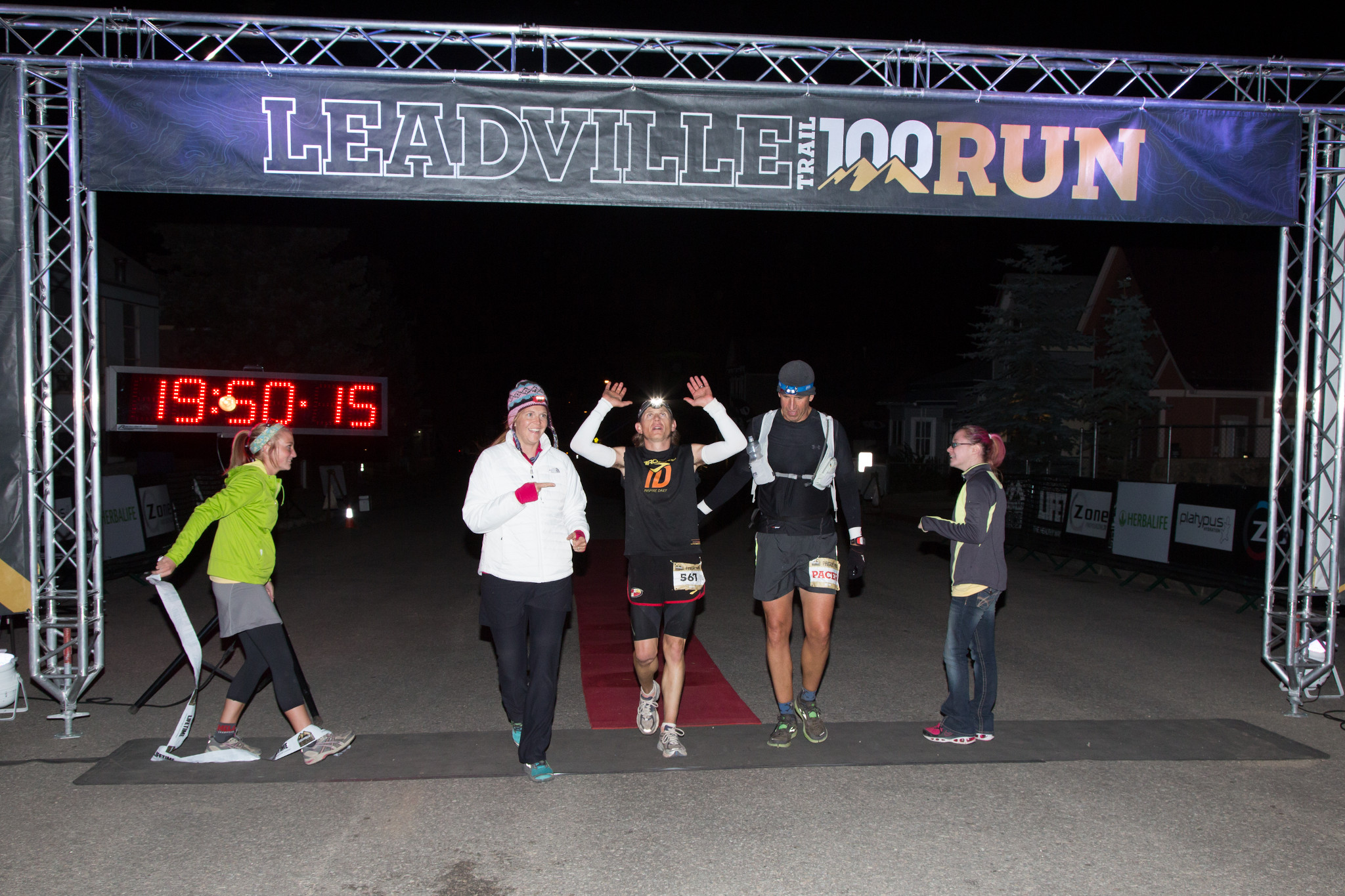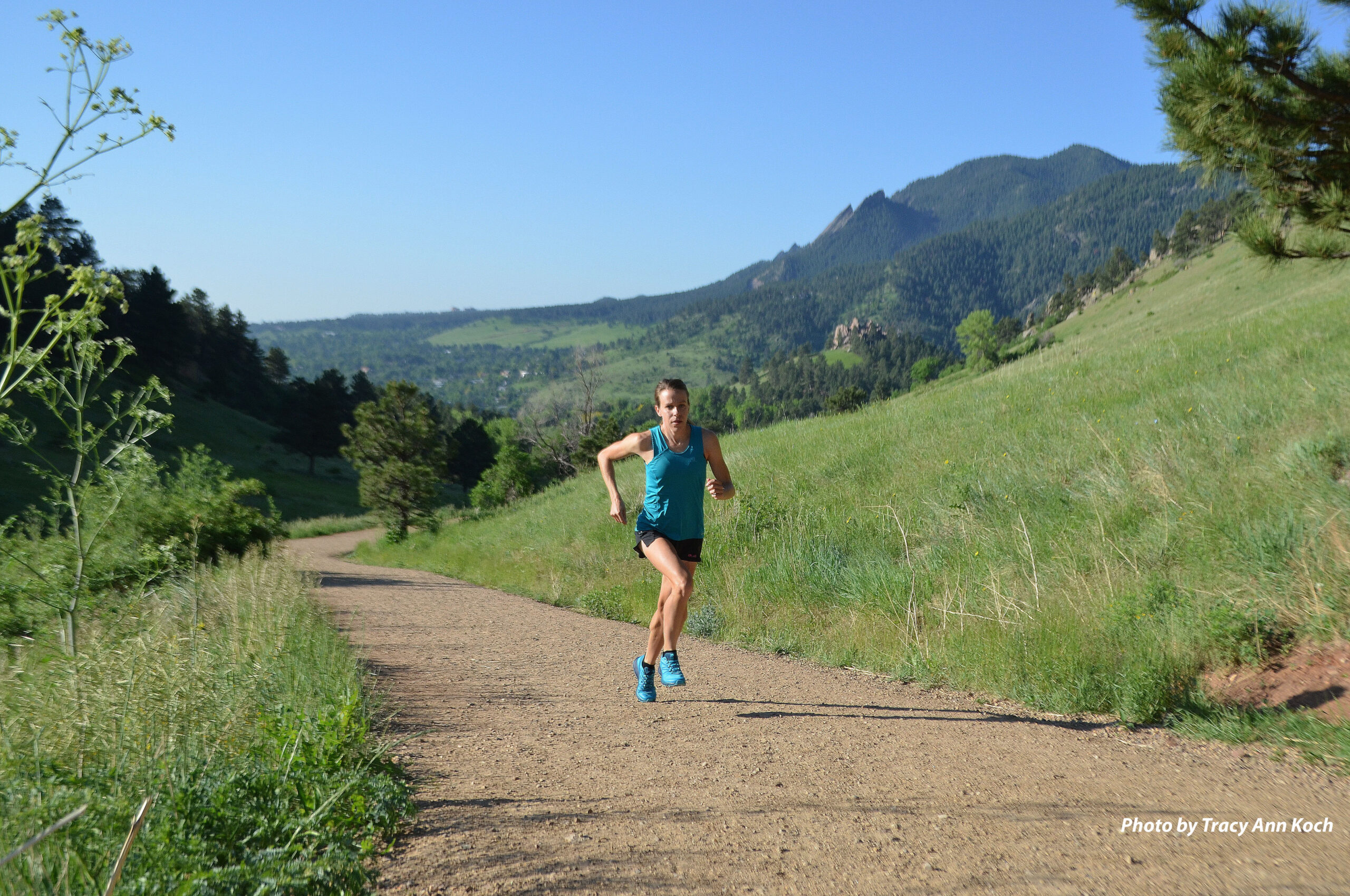Dispatches from Hope Pass — Ultra Fast: Working Speed Work into Your Ultra Training
By Emily Booth
“Speed work in ultras is cheating, You are supposed to run slow all the time and see what you can do on race day.” – Jonathan Clinthorne, PHD Sports Nutrition and competitive ultrarunner
The above quip was made (mostly) in jest by Jonathan, but there is a bit of unfortunate truth in his statement with regards to how many runners train for and race an ultra-distance event. There is a common misconception in some circles that running ultras is all about being “slow.” Recently, I read an article about the current boom in ultrarunning, specifically the 100-mile distance. When discussing these “super-humans” who attempt the distance, the author referenced the notion that ultrarunning is for “slower runners who can’t compete at shorter distances.” As those closer to the sport know, there is no shortage of speed demons who have crossed over from elite road racing to the elite level of ultrarunning. While the paces are not equivalent, for obvious reasons, it is folly to think that some element of speed is not necessary to perform well at ultra-distances. Even for us mere mortals.
While most of us may not be shattering course records, there are plenty of reasons to include both traditional and “ultra-specific” speed work in training for 100-mile runs. Below are Life Time Run and Leadville Race Series Coach Ryan Krol’s top reasons and tips on the “why” and the “how” of incorporating some form of speed training into your Leadville preparation.
The Why
- Variable Intensity: Many people are guilty of running at the same effort all the time. Hard days are hard, easy days are easy. You must be ready for different intensities and speed training will prepare you to work hard — and recover — when you have to.
- Leg Strength: By training at higher speeds in specific workouts, you improve leg strength, which can make you less susceptible to injury. Speed training can be especially beneficial for flatlanders without as much access to big climbs on which to train.
- Mental Toughness: Grinding through mile repeats can help give you some of the mental strength needed in 100-mile races when the going gets rough late in the race.
- Running Economy: Having an efficient running cadence with higher foot turnover, improved by speed training, can help you conserve precious energy over the course of 100 miles. Remember that although there are a few big climbs with hiking, there are also many long, flat sections. You want to prepare for both. If you can find that “low gear,” it will keep you moving on many of the flat, runnable road sections of the course. By preparing with some tempo runs and intervals you may find that your default “slow” pace has you flying by your competitors inbound.
- Increased Fitness: Though it sounds like a no-brainer, one of the best ways to be prepared for the demands of running at altitude is simply a higher fitness level. Tempo and speed sessions can go a long way toward making you as fit as you can be on race day.
The How
Speed work generally fits in your training cycle after the base-building phase as your race season is approaching. It is also an excellent tool while tapering to keep your fitness as you reduce volume. Space out your speed and tempo sessions with an easy run or cross-training to allow for adequate recovery. Below are some favorite workouts shared by Ryan, Jonathon, and Kerrie Bruxvoort, elite ultrarunner and Salomon Running sponsored athlete.
- Progression Runs: For example, run two to three loops of your favorite local route, increasing your pace with each loop. Practice going more conservatively on the first loop, then get faster as you go. This is also a good exercise in patience – and a 100-miler is all about patience.
- Gain/Loss Repeats: When consulted on her “secret speed weapon,” Kerrie was quick to reply “Sanitas Loops!” Boulder locals know the route well, but for those out of the area, think crazy elevation gain/loss over a three-mile trail loop, and you get the idea. If you can, find your own short, but challenging route that you can use as an opportunity to push hard…over and over.
- Downhill Repeats: Running hard downhill is an excellent way to improve foot speed and prepare your quads for the eccentric loading of long descents. For example: 5 x 3 minutes at max effort downhill. In Jonathan’s words: “Hmmm, let’s see… I really hate doing speed work. But I really love running downhill fast, especially on trickier terrain. Running really hard downhill is great for training the reflexes and turnover and in my mind provides a substitute for true speed work for those of us who don’t enjoy structured workouts so much. It seems with Leadville having so much runnable terrain, the faster you are when running in your aerobic zone the more successful your race will be. Speed work isn’t just about top-end speed but also helps to quicken your base aerobic speed, and I think that is why it is a valuable tool for Leadvillers.”
- Shorter Races: If you struggle to do tempo efforts on your own, sign up for shorter trail or road races ranging from 10K to half-marathon distances and let ‘er rip! You’ll be pushed along and motivated by others for a nice, catered training run.
- Race-Specific Efforts: Prepare for the specifics of a race by mimicking the variability you may experience on the course. One example might be 3 x 20 minutes uphill tempos at a hard but sustainable effort in heart rate zone 3/4 with recovery on the downhill. This mimics race efforts.
Of course there is no substitute for putting in the long, often slow, miles that are the foundation of ultra training. But with the inclusion of some dedicated speed workouts in your program, you just might find yourself “ultra fast.”
For some excellent Leadville training, join Ryan and Life Time Run for the FREE guided training run on the Leadville Trail Marathon course to be held Saturday, May 23 at 9 a.m. Meet at the Leadville Race Series Store on Main Street. Please RSVP here. Also, for more specific and individualized coaching, contact Ryan at rkrol@lifetimefitness.com.


